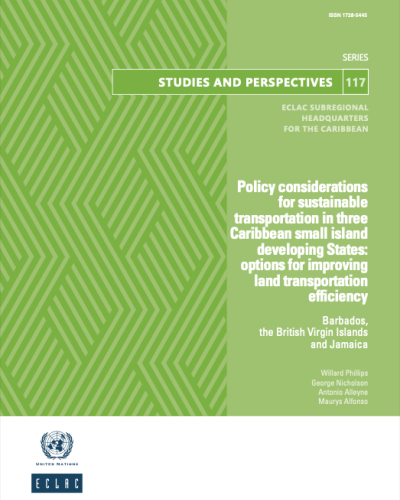Policy considerations for sustainable transportation in three Caribbean small island developing States

As the Caribbean subregion seeks to implement strategies for meeting its obligations under the Paris Agreement, the sustainable development of its land transportation subsector has emerged as a significant challenge. This relates to both the need to reduce green house gas emissions, for which the subsector is a major emitter, as well as the necessity for reducing its overall dependence on imported fossil energy. While several policy initiatives have sought to address these issues, the evidence of growing land transportation problems now motivates a closer examination of challenges in the subsector. Among the main issues are increasing motor vehicle concentrations in small island spaces and growing traffic congestion arising from increased private motor vehicle ownership. All of these factors operate to produce economic, social and environmental burdens such as growing imports of vehicles, fuel and spare parts; increased motor vehicle accidents and mortality; and socially deviant behaviours such as road rage. Given the pivotal role of transportation in the advancement of economies and society, this paper suggests policy options for improving land transportation efficiency and sustainability in the Caribbean. This study also seeks to add to the very limited literature related to the issue of land transportation in Small Island Developing States.







